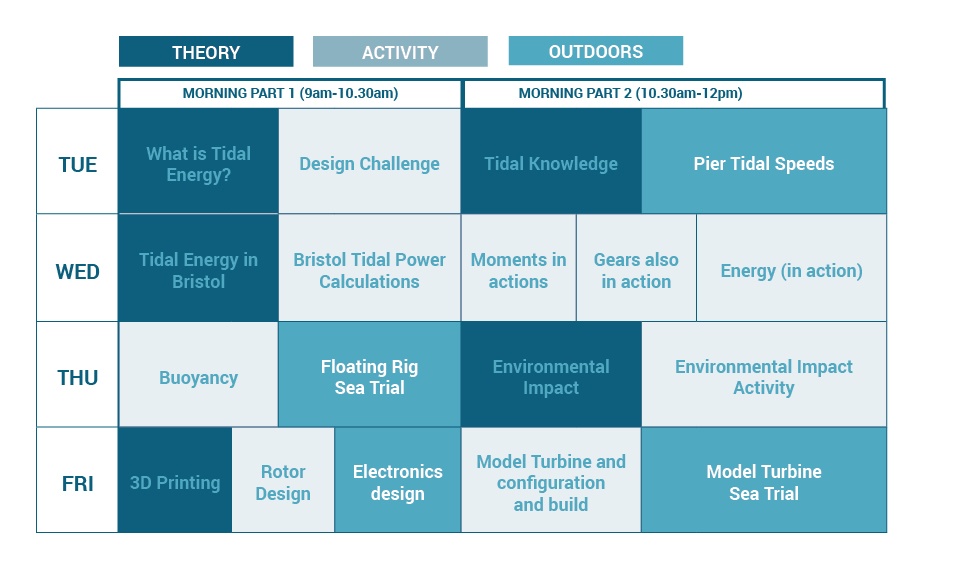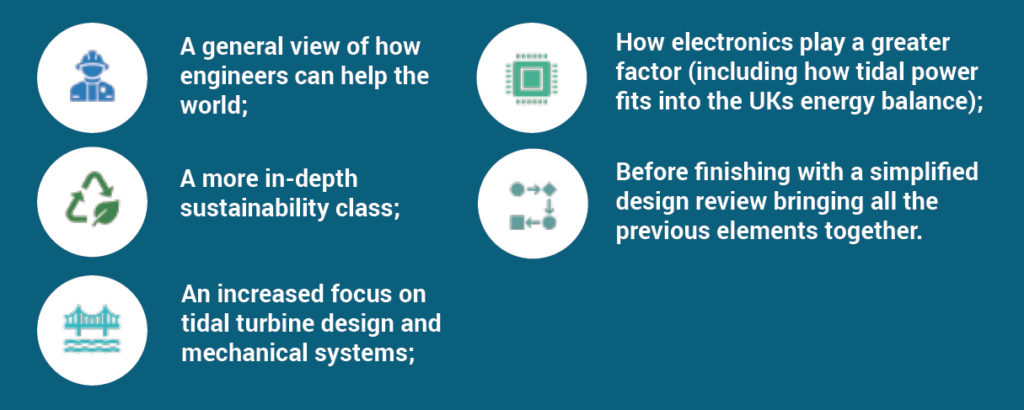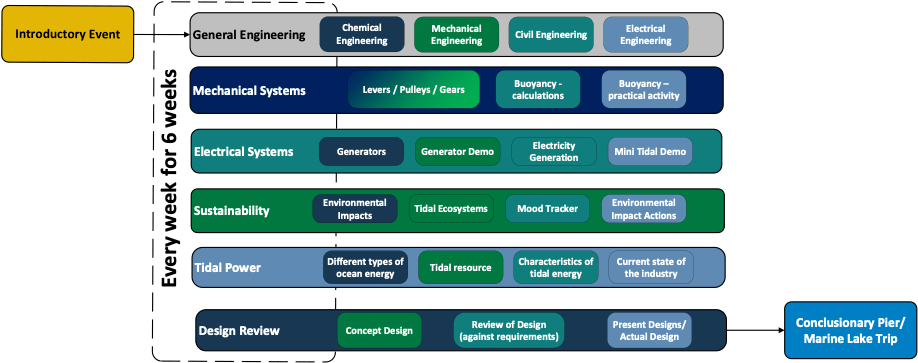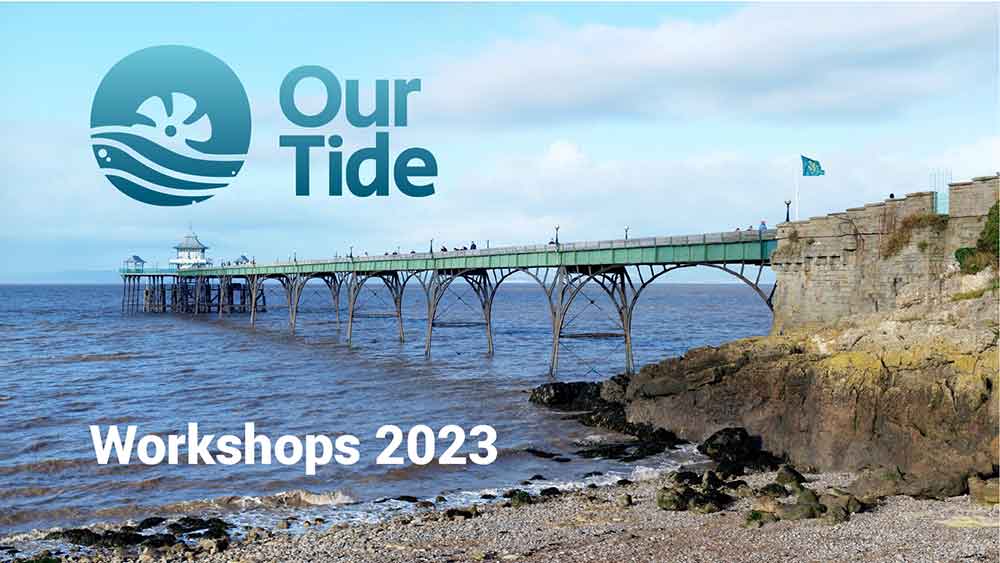Over the past 2 years OurTide has successfully run several workshops teaching students from GCSE to A-Level on the potential of tidal power in the Severn Estuary.
The aims of the workshops were to not only inspire and encourage the pursuit of STEM careers, but to educate and excite the students about the prospective power of their local Severn Estuary.
The workshops ran over a 4-day stretch, educating the students on a variety of elements relevant to the successful design and operation of tidal power.
This included aspects such as how the tides operate, how to calculate the power in the Severn, the different types of power, sustainability specs of the design and the mechanics behind a tidal turbine (amongst more).
The workshop concluded in a trip to the local marine lake to calculate tidal powers using a test rig.
2021-22 Recap

2023 Workshops Plan
Looking forward to late-2023, we are aiming to try alter the format of the workshops, increasing the focus on the practical elements of the lessons, and building on what the kids enjoyed most. The aim is to move towards a 6-week after school run of lessons, using each lesson to show the students a new form of engineering. This will include:

It is hoped that this approach will allow for more focused sessions on a variety of engineering disciplines. Moreover, this will give the students a greater breadth and appreciation for a range of engineering careers. The after-school sessions will also be bookmarked within an initial session to bring to light the wider community elements of OurTide to parents and students, whilst still concluding in a final trip to the marine lake to test the turbine rigs for power.
2023 Workshops Structure

It is hoped the weekly-after school sessions also allow for greater flexibility in planning around school timetables.
2023 Workshops Needs
For the most effective workshop, this would be best ran over 6 weeks in a single school as after class “lessons”.
From schools, we would need:
• Access to a classroom and a teacher to supervise.
• This would not require the teacher to participate, or even a science teacher.
• Help engaging with students to sign up.
In return, schools would receive:
• Increased STEM participation at the school, including the chance for students to meet young engineers.
• Workshops which can also be split into modules allowing for ad-hoc lessons on any of the modules.

